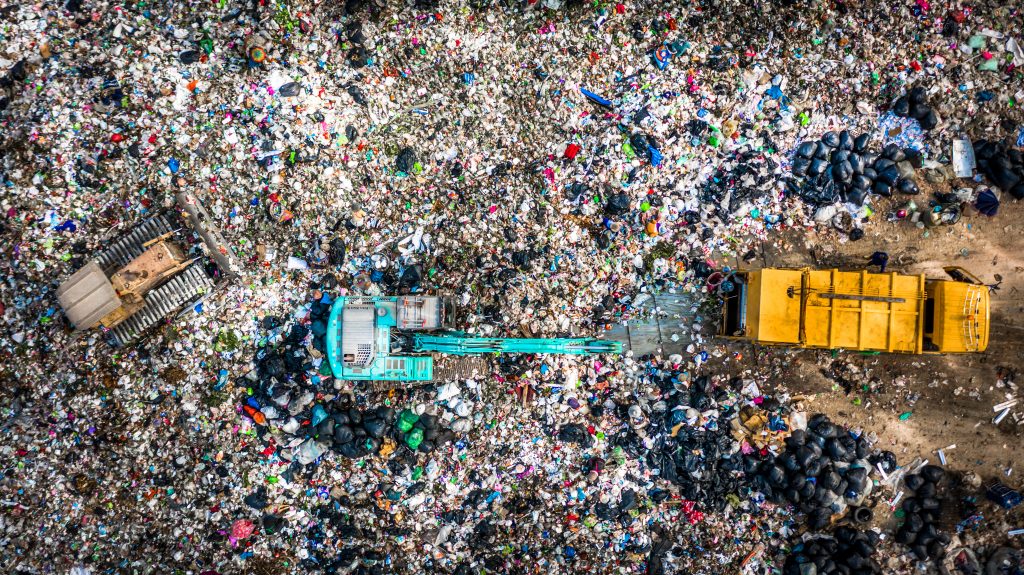
The mass production of plastic has resulted in 8.3 billion metric tons over the last six decades – some of which can take up to 1,000 years to biodegrade. Scientists predict that the rate of production will continue to rise – most of it as single-use. Worldwide, approximately only 9% of all plastic produced gets recycled yearly. Furthermore, all plastic can only be recycled a minimal amount of times, which means it eventually has to end up in landfill. So, what do we do as a global society to fight plastic waste?
Refuse, reuse and recycle. Refuse any new single-use plastic, reuse items you already have instead of buying new and recycle where possible. Here are a few more tips to get you started.
1. Choose reusable cups. Take a reusable coffee cup and reusable water bottle wherever you go. You can also do this with takeaway containers. Many restaurants and cafes are now allowing you to take away your reusable container rather than get a throwaway plastic one. Make it a habit to place your reusables in your purse, backpack or car first thing in the morning so that you don’t forget it.
2. Avoid pre-packed fruit and vegetables. Instead of buying pre-packed fruit, buy them loose and reuse a produce bag. You can also buy a reusable mesh produce bag. Or even better, purchase your fruit and vegetables from your local farmer’s markets or find out which ones are offering weekly mixed fruit and vegetable boxes with delivery options.
3. Refuse the straw. Sip don’t suck. If you do require a straw, try a reusable glass, stainless steel or silicone one. A silicone option is excellent for kids because they don’t break and are soft and safer to use.
4. Aim for waste-free lunches. Use stainless steel containers, glass containers or bamboo containers. Or use reusable beeswax wraps for sandwiches, wraps, sushi rolls, quiches, etc. You can even use safe, reusable plastic lunchboxes – the idea is to refuse single-use plastic.
5. Say ‘no’ to packaged snacks. If you must, buy them in bulk sizes for less packaging, such as potato chips, crackers, cheese etc. and put it into smaller containers for kids. You’ll save money by buying in bulk too! Or better, learn to make your snacks. Some great, healthy and easy to make options are bliss balls, muesli bars, veggie muffins and chia pudding with fruit.
6. Use reusable grocery bags. At the start of every grocery list, write down ‘grocery bags’ so that you don’t forget them and leave a few in your car. Or have a special place for them near the door or wherever you keep your car keys.
7. Buy a stainless steel razor. Rather than a disposable razor get a reusable one with disposable blades. Reusable razors are better quality and can last for decades.
8. Choose a biodegradable toothbrush. For centuries, the basic toothbrush was made from natural materials until the plastic industry took off. Today, many people are making the switch to bamboo toothbrushes and cutting out a portion of the billions of plastic ones that go to waste every year.
9. Buy cleaning products in bulk. Buy in bulk means less plastic or refill wherever you can.
10. Use a wooden comb. Many bamboo options are lightweight and easy to carry.
11. Skip the plastic cleaning brush or scrub. Buy wooden cleaning brushes and biodegradable sponges or scrubs. They work just as effective. Scrubs made from coconut fibres last longer and do not grow mould as quickly as the plastic alternative.
12. Buy meat and cheese from the deli. Check if your local butcher will place meat or cheese into a reusable takeaway container.
13. Don’t buy toilet paper wrapped in plastic. There are a lot of great new plastic-free toilet paper companies that deliver. Try, Who Gives a Crap.
And remember any improvement is something to celebrate!
